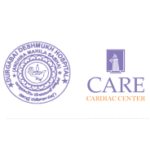Treatments Focus
Best Drug for all Chronic Conditions

A disease or condition that usually lasts for 3 months or longer and may eventually get worse with time is defined as a chronic disease. Chronic diseases tend to occur in older adults and can usually be controlled but not cured. The most common types of chronic disease are cancer, heart disease, stroke, diabetes, and arthritis.
Chronic diseases usually begin in middle age and continue to manifest in old age.
Current advances in pharmacogenomic studies enable the doctor in making the right decision for treatment to ensure safety of the patient by closely understanding an individual’s gene information and how their body responds to certain drugs.
Unhealthy Lifestyle – a Risk Factor for Chronic Diseases
Chronic diseases, also called as noncommunicable diseases (NCDs), tend to develop during middle age due to long exposure to unhealthy lifestyle routine that involves use of tobacco, alcohol consumption, lack of physical activity or lack of proper nutrition, instead consuming food rich in high saturated fats, sugars, salts, processed and canned foods.
These kinds of lifestyle habits can produce undesired results known as lifestyle disorders. Some of the examples of lifestyle disorders include:
- Diabetes
- Obesity
- High blood pressure
- High cholesterol
- Chronic Obstructive Pulmonary Disorder (COPD)
- Asthma
- Arthritis
- Lung cancer
- Chronic Kidney disease
- Cardiovascular (heart) disease
- Immune mediated diseases
- Metabolic diseases
- Lung cancer
- Depression
All these diseases can occur independently, but are also interconnected with each other. This is because the risk factors share similarities among other diseases. Sometimes, the risk factors are frequently undiagnosed or inadequately managed in health services designed to treat acute conditions.
Treatment of Chronic Conditions
A chronic condition usually lasts for a long time and cannot be completely cured. Most of these conditions can be improved via diet, exercise, and healthy lifestyle habits, in addition to medicines.
Mediation for chronic conditions is done by not just taking in one medicine, but multiple medicines. Multiple medicines are called as polypharmacy. Polypharmacy can be defined as – regular usage of at least five medications. This is common in older adults mostly, sometimes in the younger population as well with multimorbidity, as more than one medicine is required to treat each condition.
Multiple medicines are required as more than one chronic condition co-exist. In-take of multiple medicines increases the risk of undesired (adverse) outcomes in the long run.
Problems associated with polypharmacy includes adverse outcomes such as:
- Mortality
- Sudden collapse
- Adverse drug reactions (undesired side effects)
- Increased length of hospital stays
- Readmission to hospital soon after discharge
- Increased expenses
- Non-adherence
The risk of adverse effects and harm increases with increasing number of medications.
Sometimes prolonged suffering with chronic illnesses can cause an individual to undergo stress and depression that can interfere with successful treatment of the chronic condition.
Precision Medicine in treating Chronic Conditions
Precision medicine is a new advancement of the pharmacogenomics. As most of the chronic conditions have both genetic and environmental factors involved, uncovering novel disease insights by pharmacogenomic testing guides doctors to identify drug targets associated with the disease.
It also utilises biomarkers that predict drug responses in an individual. This information on the whole can help doctors tailor the best possible patient treatment available for them.
Dizziness or lightheadedness, or unsteadiness
Nausea
Vomiting
Headache
FAQ's :
References:
- LIFESTYLE DISEASES: An Economic Burden on the Health Services. United Nations. https://www.un.org/en/chronicle/article/lifestyle-diseases-economic-burden-health-services Accessed on 15-07-2022
- Chronic illness. Better Health Channel. https://www.betterhealth.vic.gov.au/health/healthyliving/chronic-illness Accessed on 15-07-2022
- Medication Habits to Manage Chronic Conditions. Winchester Hospital. https://www.winchesterhospital.org/health-library/article?id=662165 Accessed on 15-07-2022
- Chronic Care, Prescription Drugs, And More. Health Affairs. https://www.healthaffairs.org/doi/10.1377/hlthaff.2018.0790 Accessed on 15-07-2022
- About Chronic Conditions. Centers for Disease Control and Prevention. https://www.cdc.gov/chronicdisease/about/index.htm Accessed on 15-07-2022
- Chronic Disease. National Cancer Institute. https://www.cancer.gov/publications/dictionaries/cancer-terms/def/chronic-disease Accessed on 15-07-2022
- Lifestyle and Related Risk Factors for Chronic Diseases. National Library of Medicine. https://www.ncbi.nlm.nih.gov/books/NBK2290/ Accessed on 15-07-2022
- Occupational lifestyle diseases: An emerging issue. National Library of Medicine. https://www.ncbi.nlm.nih.gov/pmc/articles/PMC2862441/ Accessed on 15-07-2022
- Chronic Illness and Depression. Cleveland Clinic. https://my.clevelandclinic.org/health/articles/9288-chronic-illness-and-depression Accessed on 15-07-2022
Related Articles
Book an Appointment to understand how GenepoweRx can help you in treating
Best Drug for all Chronic Conditions
Meet The Doctors
Dr Kalyan Uppaluri
Dr Hima Challa
Your genetics … Your Test ... Your Health Success
It’s always the word of mouth that’s the best advice. Here are some of our…


Our Partners






Professional Partnerships
Government Association

